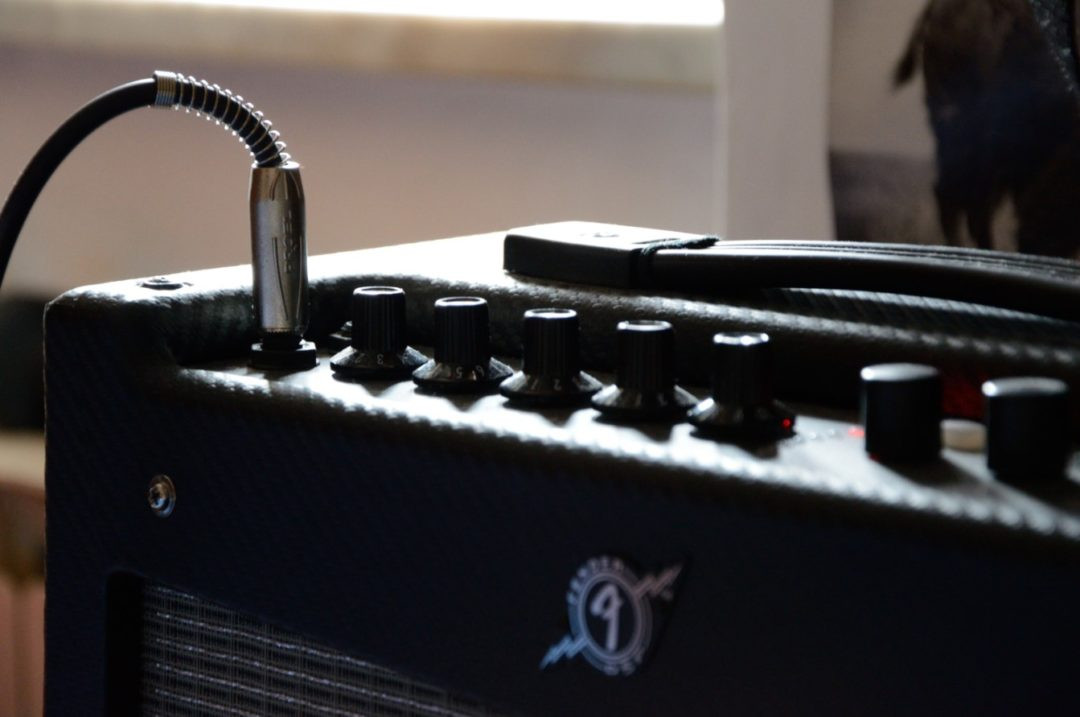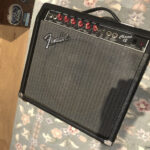 playing on a guitar amp
playing on a guitar amp
The short answer to the question of whether you can plug a bass guitar into a guitar amp is yes. However, while it’s possible, it’s generally not recommended and definitely not ideal. Standard guitar amplifiers are simply not engineered to handle the lower frequencies that a bass guitar produces. Using a guitar amp for bass can lead to a less-than-stellar sound and, in some cases, even damage your equipment. Before you consider playing your bass through a guitar amp, it’s crucial to understand the potential implications to make an informed decision, and perhaps explore better alternatives.
Bass Guitar Amps vs. Guitar Amps: Dissecting the Differences
Guitar amps and bass amps are designed with fundamentally different frequency ranges in mind. Guitar amps are built to amplify the mid and high frequencies of a standard electric guitar, focusing on tones that are bright and articulate. Bass amps, conversely, are specifically designed to reproduce and enhance low and mid-low frequencies. They are less sensitive to higher frequencies and prioritize the deep, resonant tones of a bass guitar. This difference in design extends to the speakers themselves. Bass amp speakers are typically larger and more robust, allowing them to move more air. This is essential for accurately reproducing the powerful low-end frequencies of a bass without distorting or failing. Smaller speakers in guitar amps simply cannot effectively translate the rich, low tones of a bass guitar, often resulting in a thin or muddy sound.
The Potential Dangers of Playing Bass Through a Guitar Amp
Choosing to play your bass through a guitar amp can present several risks, primarily related to frequency handling and power output. The lower frequencies generated by a bass guitar can push the speakers in a guitar amp beyond their designed limits. This can lead to speaker damage, ranging from a blown speaker to a gradual degradation of sound quality over time. Furthermore, bass guitars generally have a higher power output than guitars, especially in the lower frequencies. Bass amplifiers are built to manage this increased power demand, whereas guitar amps may not be. Overpowering a guitar amp with a bass signal can strain its internal components, potentially leading to damage or failure.
Tips to Minimize Damage When Using a Guitar Amp for Bass
If you find yourself in a situation where using a guitar amp for your bass is your only option, there are steps you can take to minimize the risk of damage:
-
Keep the Volume Low: Lower volume levels reduce the excursion of the speaker cone. This means the amp doesn’t have to work as hard to reproduce low frequencies, lessening the strain. Excessive speaker movement from high volumes can also loosen internal components, causing rattling and unpleasant buzzing sounds.
-
Avoid Effects (FX): Effects, especially distortion and overdrive, can add extra stress to the speaker due to increased harmonic content and vibration. When using a guitar amp for bass, it’s best to avoid any effects pedals or amp effects to minimize potential damage.
-
Steer Clear of Tube Amps: Tube amps are particularly vulnerable to damage from bass frequencies. They are more delicate than solid-state amps, and the vibrations from bass frequencies can rattle and damage the tubes themselves, even at lower volumes. Playing bass through a tube amp is generally considered a risky practice and should be avoided entirely if possible. Solid-state amps might be slightly more tolerant, but the risks still remain.
Playing bass through a guitar amp is almost always a compromise. Not only will your bass guitar likely not sound its best – often described as sounding like a muddy, undefined, and weak version of its potential tone – but you also risk damaging your equipment. In most scenarios, it’s best to avoid this setup. If you are without a bass amp, consider alternatives like plugging directly into a PA system. While not ideal for tone shaping, a PA system is generally more equipped to handle the full frequency range of a bass guitar without the risk of damaging a guitar amplifier.
People Also Ask
Is it Safe to Play a Bass Through a Guitar Amp?
Technically, yes, it’s possible, but it’s not recommended for long-term or high-volume use. Guitar amps are not designed to handle the low frequencies of a bass guitar, increasing the risk of speaker or component damage, especially at louder volumes. To minimize risks, keep volumes low and avoid using effects.
Do I Need a Special Amp for a Bass Guitar?
Yes, a dedicated bass amp is highly recommended for bass guitar. Bass amps are engineered to reproduce the deeper frequencies and higher power output of bass guitars accurately and safely. Using a bass amp ensures optimal sound quality and reduces the risk of damaging your equipment.
Can You Play Bass With Any Amp?
While you can technically play bass through various types of amps, including guitar amps, it’s always best to use a bass amp. Guitar amps can function in an emergency, but they will not deliver the full, rich bass tones effectively and may be damaged over time if used frequently or at higher volumes with a bass guitar.
Can You Use a Digital Guitar Amp for Bass?
Digital guitar amps can offer more versatility than traditional analog amps, but they are still generally not optimized for bass frequencies. While some digital amps might handle low volumes with bass better than traditional guitar amps, the sound quality will likely still be compromised, and there’s still a potential risk of speaker damage if pushed too hard, especially at higher volumes or with bass-heavy presets.

